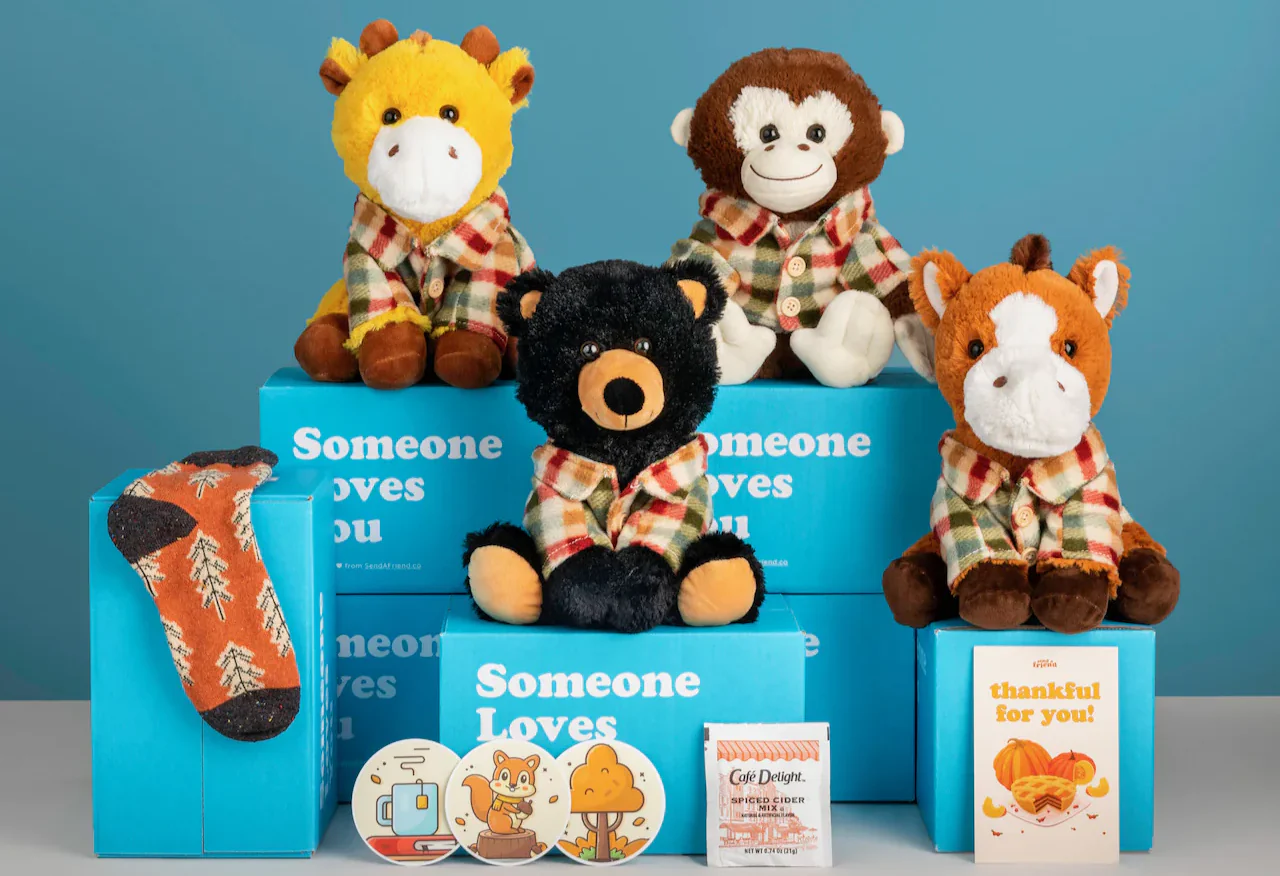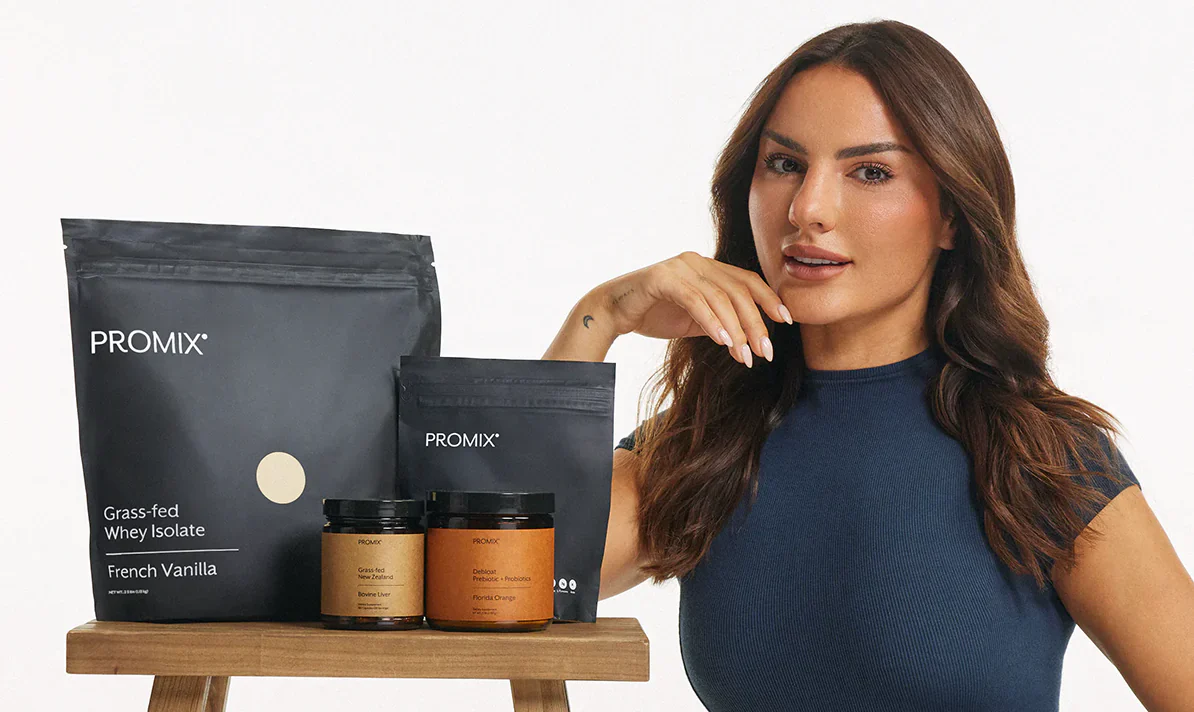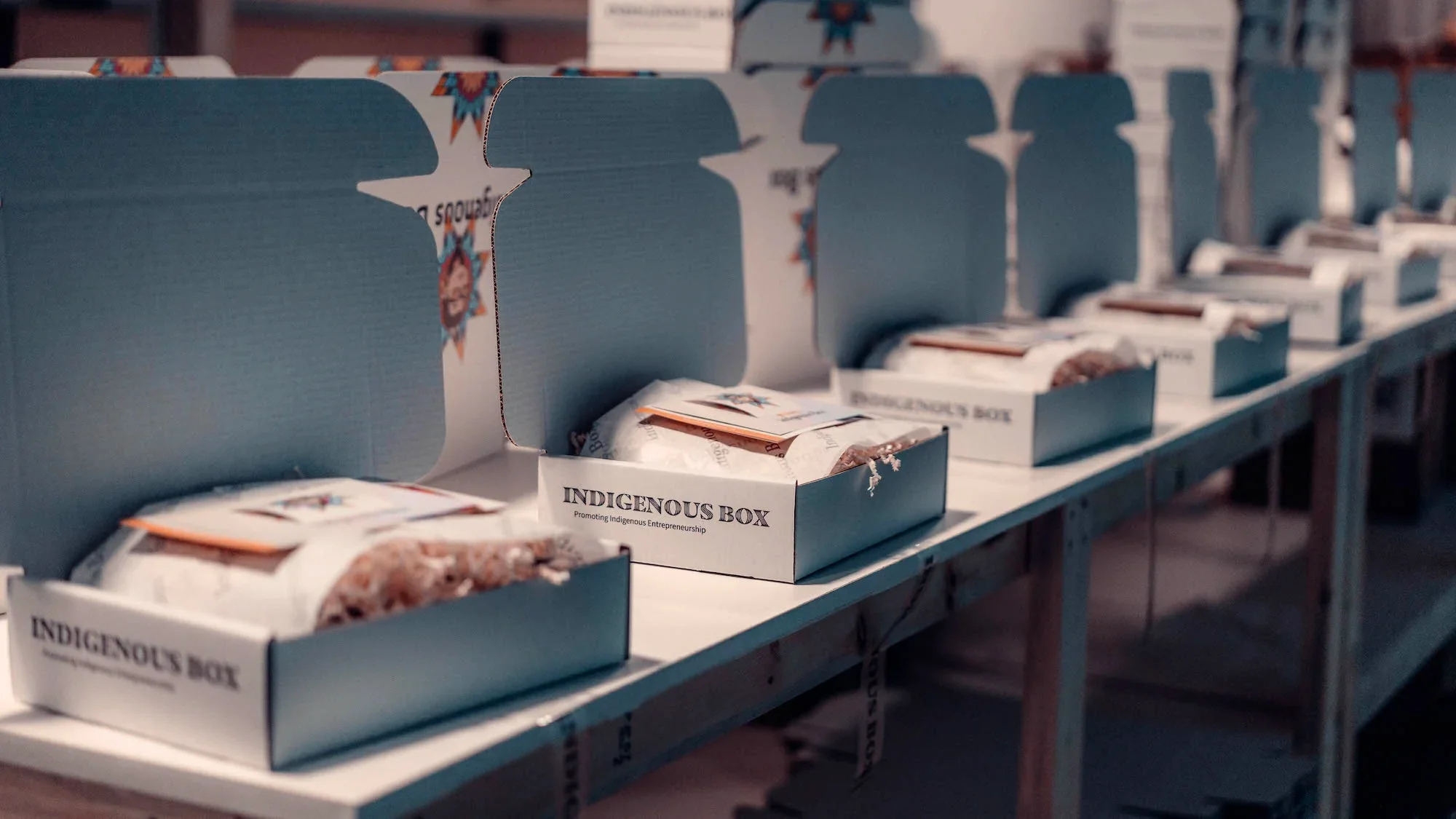Every year, millions of businesses launch, but only a few make it big.
Just 4% of businesses ever reach $1 million in annual revenue. These successful businesses share key traits: they jump on emerging trends, use the latest technology, and build brands that really connect with customers.
If you’re dreaming up business ideas or trying to grow your current business, you’re not alone.
We’ve studied entrepreneurs who turned simple ideas into million-dollar businesses. From social media brands to subscription services and AI-powered startups, these founders succeeded by staying flexible, reimagining traditional products, and creating experiences customers can’t resist.
Whether you’re just getting started or looking to take your business to the next level, these proven business ideas can help you break through six figures and hit that million-dollar goal.
17 million-dollar business ideas
- Sell a golden trifecta product
- Iterate an existing product
- Launch a brand built for social media
- Build your business around a purpose
- Dropship trending products
- Start a home business, then scale
- Start an AI-powered business
- Sell private label products
- Package your skills into an online service
- Create an online course
- Start a YouTube channel
- Reach $1 million with subscription revenue
- Develop a mobile app
- Modernize a traditional product
- Create design-focused versions of everyday products
- Build a consulting business around your expertise
- Create a community-driven business
1. Sell a golden trifecta product

Best for: Entrepreneurs looking to create products that are functional, visually appealing, and innovative.
Startup costs: Varies widely; typically between $10,000 to $100,000 for design, prototyping, and initial manufacturing.
Starting a million-dollar business isn’t about luck—it’s about building a growth strategy.
Take Emily Chong and Nathan Chan, founders of lifestyle brand Healthish. They created a sleek water bottle with time-stamped hydration reminders—a simple idea that turned into thousands of sales and rave reviews.
As founders, Emily and Nathan suggest carefully choosing your product. They recommend looking for a “golden trifecta” of qualities that can help your business grow fast.
Here’s what the trifecta looks like:
- Find a lightweight product that’s easy to handle and cheap to ship. This cuts down your operational costs and makes your product accessible to more customers. For Healthish, their water bottle was the perfect fit.
- Choose products with high perceived value but affordable production costs. This balance is key to keeping your profit margins healthy. After researching customers and competitors, Healthish discovered that many people will pay more for water bottles with standout design features.
- Look for products trending on social media. A visually striking product can seriously boost your online presence and sales. Healthish says visual appeal is a “game-changer” for social media sales.
When these three factors come together, you’ve got a product that’s not just easy to ship and affordable to make, but also trendy and appealing to customers.
2. Iterate an existing product

Best for: Entrepreneurs who spot opportunities to improve current products.
Startup costs: Typically between $5,000 and $50,000, depending on your product modifications and manufacturing needs.
Innovation isn’t always about creating something new. Sometimes, it’s about taking an existing product and making it better. This could mean tweaking a design to fit a specific target audience or introducing a product to a whole new market.
Take City Seltzer, for example. It started as a promotional drink at a craft beer festival. Brewery owner Josh McJannett noticed how popular the non-alcoholic seltzers were and realized he could tap into a “whole new world of customers.”
Alice Kim’s story is similar. She founded PerfectDD, a specialized clothing brand, after struggling to find a comfortable and flattering bra. “Learning that the average bra size in the US is a 34DD and millions of women struggle with the same problem,” she says, “I was inspired to create a solution.”
3. Launch a brand built for social media
Best for: Creatives and marketers who understand social media dynamics and can craft engaging content.
Startup costs: Approximately $10,000 to $50,000, covering branding, content creation, and initial marketing campaigns.
Direct marketing channels like social media, email, and SMS can fuel serious growth for your business—and do it affordably. Just look at Vitaly Jewelry, a Toronto-based brand that used direct marketing to catch the attention of celebrities like Grimes, Post Malone, and Billie Eilish.
After trying paid ads, Vitaly shifted its budget to organic social media campaigns. One giveaway contest drove 55,000 email signups and half a million dollars in sales.
Joe Cornfield, president of Vitaly, credits their success to conversational commerce and working with niche influencers:
“[We] really go after a niche by finding the influencer or content creator who has a strong affinity in that world and collaborate with them directly.”
Vitaly evaluates its direct marketing content by asking key questions:
- Are customers tagging us on social media with the logo facing forward?
- What are engaged community members saying?
- What feedback are we getting from customers?
4. Build your business around a purpose

Best for: Entrepreneurs passionate about social, environmental, or community causes.
Startup costs: Ranges from $15,000 to $100,000, depending on the business model and cause-related initiatives.
A business can thrive when it serves something people already care about. Could you tap into the demand for popular events or meaningful experiences?
The wedding industry, for example, is worth more than $1.3 trillion globally. By selling trending wedding products, you could capture just a small slice of the market and build a successful business.
But it’s not just about events. Aligning your business with meaningful commitments can really connect with customers.
SendAFriend is a great example. Founder Tyler Macke wanted to create a business that helps people surprise their loved ones. He developed a stuffed animal care package service with bright blue boxes designed to spark joy when customers receive them.
5. Dropship trending products

Best for: Individuals seeking a low-overhead ecommerce model without inventory management.
Startup costs: Relatively low, typically between $500 and $5,000, mainly for setting up an online store and marketing.
Dropshipping can turn a small investment into a million-dollar website. Instead of buying inventory upfront, your dropshipping supplier charges you for products only when they sell. Your supplier handles picking, packing, and shipping.
Once you find a dropshipping supplier, your job is to connect with potential customers through an online store or social media.
Take eBike Generation, a successful dropshipping business. Founder Jason Kraft spotted the rising trend of electric bikes and built a thriving online store. He started by dropshipping from various suppliers but soon focused on high-ticket items. This strategy helped him create a multimillion-dollar business with comparatively few sales.
The low overhead costs of dropshipping means that once you find success with one business, starting a second becomes much easier.
6. Start a home business, then scale

Best for: Entrepreneurs looking to test business ideas with minimal upfront investment.
Startup costs: Usually under $10,000, covering basic equipment and marketing.
Got a creative spark? You can start a business right from your home. You could make and sell handmade products like:
Once you build a customer base and establish your brand, it’s time to grow. Think about hiring help to increase production, which frees you up to explore new projects. As your business expands, look into selling on marketplaces and in retail stores.
Take Leslie Herrmann from Waystone. Her business turning stones into custom jewelry started as a family project for her wedding in 2017. Now, she believes it could reach $1 million.
“We had to do a fair amount of development to create a website that allowed our customers to really design their own jewelry,” Leslie says. “We have more products in the pipeline and are excited to continue to grow from necklaces to earrings, cufflinks, rings, bracelets, more shapes, etc.”
7. Start an AI-powered business
Best for: Tech-savvy individuals interested in leveraging artificial intelligence to solve problems.
Startup costs: Can vary widely, from $20,000 to over $200,000, depending on the complexity of the AI solution.
Businesses across nearly every industry are using AI to cut spending, scale processes, and increase profits.
Maryam Haghighi, the Bank of Canada’s director of data science, advises entrepreneurs to think about how AI can impact their business now and in the future.
“The good news is it’s becoming less and less expensive to access disruptive tech,” she says.
Could you harness AI to develop the next million-dollar business? Here are some AI business ideas that might match your skills:
- AI content marketing: AI can help create content optimized for search engines and tailored to your audience. As a content creator specializing in AI-produced content, you might charge less per piece, but the speed and scale could give you a big advantage.
- AI personal assistant services: Develop an app or simple SaaS platform that helps with schedule management, set reminders, and reduces stress around commitments. By starting a business that offers AI personal assistant services, you can help businesses improve their efficiency.
- AI agency or consultancy: If you’re an expert on the latest AI technology, why not start an agency that advises businesses on using AI to improve their operations?
8. Sell private label products

Best for: Entrepreneurs who want to brand and sell existing products under their own label.
Startup costs: Typically between $5,000 and $30,000, covering product sourcing, branding, and initial inventory.
Private labeling is a business model where brands work with manufacturers to customize products. This approach cuts down development time and costs since manufacturers are already set up to produce the item.
Choosing a private-label product to customize and sell can be a profitable business idea. It works best for businesses with a solid audience and the ability to invest in inventory.
Look at Promix, a brand that developed private label products to stand out in the crowded supplements market. Founder Albert Matheny used private labeling to turn his food science background and personal brand into a business.
“I have a gym in New York. I’ve trained people for 10-plus years, and I’m an athlete as well,” Albert says. “I really do try to live and breathe it and stay up on everything that’s happening.”
By focusing on an industry where he had genuine expertise, Albert developed a quality private-label product with a compelling brand story.
9. Package your skills into an online service

Best for: Professionals with expertise in consulting, design, writing, or programming.
Startup costs: Low cost, often under $5,000, primarily for setting up a website and marketing.
Want to turn your professional skills into a business you can run from anywhere? You can help people who need expertise they don’t have or don’t have time to develop.
Alex Micol, founder of Scalers, built a marketing agency generating $30 million annually. His secret? Understanding “the deepest depths of social and digital ecosystems” to bring in serious money.
Alex practices what he preaches through an affiliate marketing model, earning revenue by selling products for other retailers. His top tip: Work with affiliates or clients in a field that matches your professional background or personal passion.
You can sell skills online in tons of ways:
- Graphic design lessons
- Freelance writing services
- Personal training packages
- Mobile app development
- Video editing services
Consider offering consulting or virtual tutoring, which often command higher rates because of their personalized, one-on-one approach.
As Scalers suggests, the key to making millions with a service business is scaling. Build a team and create a mini agency to take on more clients and boost your online revenue.
10. Create an online course

Best for: Experts who can teach valuable skills or knowledge.
Startup costs: Generally between $1,000 and $10,000, covering course creation tools and marketing.
Online courses are a powerful way to turn your expertise into a digital product. Once developed, a well-structured course needs only minor updates, keeping production costs low while reaching potentially unlimited customers.
Jack Butcher’s Visualize Value is a perfect example. He used graphic design skills to turn complex business practices into accessible illustrations, creating digital lessons that generate more than a million dollars annually.
When marketing your course, social proof is everything. This means potential students are more likely to sign up when they see positive reviews and testimonials. It gives them confidence in the course’s value and quality.
After building an audience, you can expand your digital empire. Think ebooks, webinars, merchandise, or even affiliate marketing—promoting products for other companies and earning commissions on sales.
11. Start a YouTube channel

Best for: Individuals with a unique personality or expertise in a specific topic.
Startup costs: Low, often less than $1,000, mainly for basic recording equipment and editing software.
With viewers watching a billion hours of YouTube content daily, a YouTube channel could be your pathway to a million-dollar business. Have a unique personality or deep knowledge about a topic? Start posting regular videos and build an audience.
You can monetize your YouTube channel, through:
Take Ryan Trahan, a track athlete who started a YouTube channel about running. He dropped out of college with 30,000 subscribers, determined to make YouTube his full-time career. His content philosophy is all about finding and expressing his unique perspective.
“You’re the only person that’s you. I’m the only person that’s me. And it actually matters. I think that matters a lot,” Ryan says.
He’s since grown to 17 million subscribers, landing multiple brand deals and creating big-budget sponsored videos as part of his thriving online business.
12. Reach $1 million with subscription revenue

Best for: Businesses offering products or services that customers need regularly.
Startup costs: Varies widely, typically between $10,000 and $50,000, covering product development and marketing.
The subscription market is booming, expected to hit $1.5 trillion in 2025. This means big opportunities for businesses that can create a steady stream of monthly revenue.
Want to jump in? You can package popular products like food, cosmetics, or pet toys into a subscription box. Use apps like Shopify Subscriptions, Appstle, or Seal to manage automatic monthly billing and keep customers excited about what’s coming next.
Mallory Yawnghwe turned this idea into a powerful business with Indigenous Box, a quarterly subscription service featuring products from Indigenous entrepreneurs.
“I meet with every single entrepreneur we buy from,” Mallory says. She’s passionate about the businesses she works with, noting that many create products to raise awareness and fuel change for their communities.
“It’s just so powerful to work with them.”
13. Develop a mobile app
Best for: Tech enthusiasts and developers with innovative app ideas.
Startup costs: Can range from $10,000 to over $200,000, depending on app complexity and development requirements.
The mobile app market is set to generate more than $935 billion in revenue in 2025. Create an app that solves a problem, entertains, or boosts productivity, and you could be on your way to a million-dollar business.
Noah Kagan, founder of AppSumo, knows a thing or two about launching successful digital products. He’s built multiple online businesses and advises entrepreneurs to start small and validate their ideas through real-world feedback.
“You don’t need to build the entire product upfront,” Noah says. “Start by selling the idea before you even code a single line.”
Apps can make money through paid downloads, in-app purchases, advertising, or subscriptions. Look at success stories like Calm and Duolingo—they prove that a niche-focused mobile solution can become a global hit.
14. Modernize a traditional product

Best for: Product designers and entrepreneurs looking to innovate.
Startup costs: $20,000 to $100,000 for manufacturing and marketing.
Some of the most successful businesses aren’t built on totally new ideas, but on making old ideas better. Modernize a traditional product with better materials, improved design, or new technology and you could create a high-demand business.
Aloha Collection is a perfect example. They took a simple concept—beach bags—and reimagined them using lightweight, waterproof materials inspired by travel and adventure. The founders wanted stylish bags that could carry wet swimsuits and withstand the elements while looking great.
“We started with a $2,000 investment and a vision,” says co-founder Rachael Leina’ala.
By focusing on quality and aesthetic appeal, Aloha Collection turned an everyday product into a fashion-forward, travel-friendly must-have. Now they’re stocked in major retailers and loved by jet-setters worldwide.
15. Create design-focused versions of everyday products

Best for: Designers and entrepreneurs with an eye for aesthetics.
Startup costs: $30,000 to $150,000 for product design and manufacturing.
Some businesses succeed not by inventing something new, but by making everyday objects extraordinary. Consumers will pay a premium for beautifully designed products that make daily routines feel special.
Fellow transformed coffee-making from a simple task into a luxury experience by applying sleek, modern design to coffee gear.
“We saw a gap in the market where coffee equipment was either cheap and ugly or professional-grade but inaccessible,” says founder Jake Miller.
By combining stunning aesthetics with high performance, Fellow created products that became must-haves for coffee lovers and professionals. Their success proves that even in a well-established market, there’s room for innovation when design takes center stage.
16. Build a consulting business around your expertise

Best for: Experts in marketing, sales, business strategy, or specialized fields.
Startup costs: $500 to $10,000 for branding and marketing.
Have deep knowledge in a specific field? You can turn that expertise into a lucrative consulting business. Companies and individuals will pay for expert advice on everything from marketing to product development.
Bushbalm, now a multimillion-dollar skin care brand, actually started with consulting. The founders used their marketing expertise to help others launch products before creating their own line of ingrown hair and skin care solutions.
“We used our marketing background to test different strategies, then applied those learnings to our own brand,” says co-founder David Gaylord.
Whether you specialize in digital marketing, business strategy, or product development, consulting lets you start earning quickly while building authority in your industry.
17. Create a community-driven business

Best for: Entrepreneurs who love engaging with people and fostering a loyal customer base.
Startup costs: $10,000 to $50,000 for product development and marketing.
Businesses that focus on community engagement often see stronger brand loyalty and customer advocacy. By building a community around your product or service, you can create a self-sustaining marketing engine where customers actively promote your business.
Sugardoh’s journey from a dorm room experiment to a multimillion-dollar beauty brand shows the power of community-driven growth. Founder Aliyah Marandiz modernized an ancient Middle Eastern hair removal technique into a contemporary beauty solution. By engaging her immediate community—friends, family, and neighbors—she built a strong foundation that propelled Sugardoh into more than 300 Ulta Beauty and Urban Outfitters stores.
Aliyah’s marketing approach is refreshingly authentic. She focuses on education through engaging content, helping viewers learn naturally.
“You never want to market your product so explicitly,” she advises. “Create content where you would never know that you were marketing a product or pushing a product, so it’s just natural.”
What makes a million-dollar business idea?
“Growing a profitable business is not an accident,” says Troy D’Ambrosio, executive director of the University of Utah’s Lassonde Entrepreneur Institute. “Founders must work hard to build their product, sales, and marketing. The idea is important, but it’s what a founder does with it that matters most.”
Successful business owners with an entrepreneurial mindset share key traits:
- Resilience
- Curiosity
- Accountability
- Confidence to step out of their comfort zone
These entrepreneurial skills can help you win outside investment and propel your business toward million-dollar success. Just ask Jimmy Daly, founder of networking company Superpath.
“The biggest thing is probably the stamina to turn a good idea into a million-dollar business,” says Jimmy.
He recalls an old coworker starting an agency and seeking investment. “Starting an agency isn’t a unique business idea, but there are plenty of million-dollar agencies. Having worked with him for a few years, I knew he was persistent, and I was happy to invest.”
How to execute your million-dollar business idea
Once you’ve found your million-dollar business idea, here’s how to start your business:
Write a solid business plan
A business plan details every aspect of your business, from your target audience and market research to the strategies you’ll use to attract customers.
Create an online store
An online store lets you sell products globally. Build your ecommerce website with Shopify starting at $29 per month.
Develop a brand
A strong brand sets you apart from the competition. Create a logo and tagline, and develop a brand story to help your products stand out.
Invest in market research
Market research is crucial to understanding your target audience’s current and future needs. Run email surveys, analyze website visitor behavior, and read industry reports to get a full picture.
The insights developed from market research can help you add new products, adjust pricing, or make proactive changes to your brand identity.
Find funding
Every business needs some capital to get started. If you’re not investing in inventory or employees, you might self-fund or secure a bank loan. As you establish your brand and validate product demand, you could explore crowdfunding platforms like Kickstarter or Indiegogo.
How we chose these million-dollar ideas
Not every business idea has million-dollar potential. We curated this list by researching high-growth industries, examining real-world success stories, and analyzing common patterns among successful businesses.
Our methodology included:
- Insights from successful founders: We spoke directly with entrepreneurs who have built million-dollar businesses on Shopify, diving deep into what worked (and what didn’t) when scaling their companies.
- Market trends and industry growth: We researched industries showing rising consumer demand, high scalability, and strong profit potential. Our exploration covered promising sectors like ecommerce, digital products, subscription services, and niche consulting.
- Low to moderate startup costs: While some million-dollar businesses require significant upfront investment, we intentionally prioritized ideas that can start lean and scale efficiently.
- Monetization models: We carefully examined business models with recurring revenue, high-margin products, or scalable services—approaches that make reaching the seven-figure mark more achievable.
These million-dollar business ideas are versatile. They work for college students wanting to earn a bit of cash on the side, those wanting to make money part-time, and even teens with a big vision.
Turn your million-dollar idea into a winning business
As these entrepreneurs show, building a multimillion-dollar business is possible with a small investment and a good idea.
The best part? You don’t need to reinvent the wheel. Solve a common problem, improve an existing product, identify a niche, or find a new way to use the latest technology to make your mark.
Million-dollar business FAQ
What is a million-dollar business?
A million-dollar business is a company valued at more than $1 million, including the value of its brand, inventory, and assets.
How do I start a million-dollar business?
- Find an industry with niche or mass appeal.
- Source products from a dropshipping supplier or manufacturer.
- Build a brand around your chosen products.
- Focus on marketing to attract customers.
- Expand your product line.
What are some million-dollar ideas?
- Dropship popular products
- Start a YouTube channel
- Create an online course
- Start a wedding business
- Sell a subscription box
What businesses make millions?
- Finance companies
- Subscription boxes
- YouTube or TikTok influencers
- Wedding companies
- Dropshipping businesses








